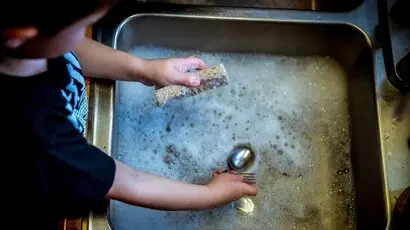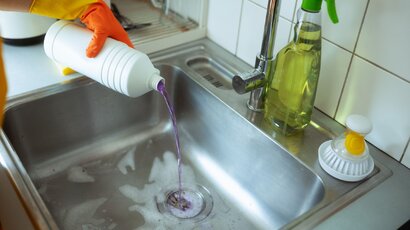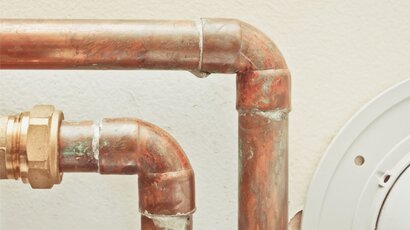How To Prevent Kitchen Sink Blockages
Get our essential tips for maintaining a clean and functional kitchen sink. Our blog offers easy-to-implement advice for preventing common sink blockages, helping you preserve the heart of your home.
Facing a clogged kitchen sink? Minor clogs are usually easy to fix, but ignoring them can lead to bigger issues. What starts as a slow drain might turn into a full blockage, causing water to back up into other areas if left unchecked.
A stubborn blocked sink might suggest deeper piping issues. This is why regular maintenance is crucial. Spotting problems early with routine cleaning is far easier than facing major drainage failures in the future.
Maintaining clear drains safeguards your kitchen plumbing investment and saves you from costly repairs and the expensive consequences of neglected blockages. Let’s dive into some key strategies.
Maintaining a clear kitchen sink is paramount to a well-functioning kitchen and can save you from the hassle and costs of blockages. Here are some daily habits to incorporate into your kitchen routine to prevent kitchen sink drain issues:
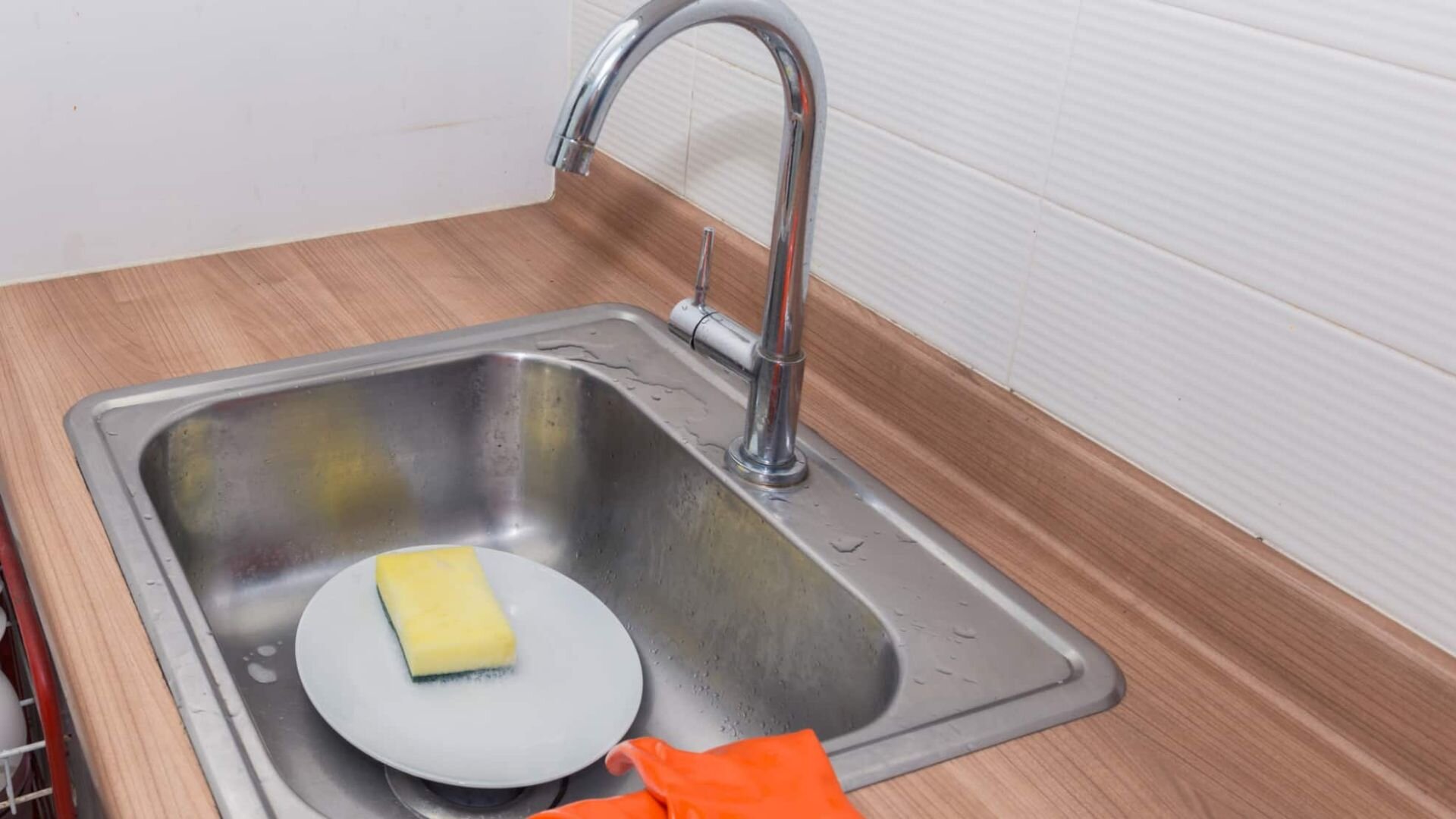
A drain strainer acts as a barrier, catching food particles, coffee grounds, and other materials before they enter your kitchen sink drain. This simple tool can be the first line of defence against clogged drains.
Make it a habit to clean the drain strainer regularly—if possible, after each dishwashing session. Rinse it thoroughly to remove all the trapped food debris and ensure it works effectively.
Hot water serves as a natural agent that softens and breaks down oily substances that could cling to the walls of your pipes. Regularly flushing your sink with hot water preemptively dissolves these substances, thus preventing potential cooking grease blockages.
For optimal results, use boiling or boiling water. Do this at least once a week or more frequently if you often deal with oily substances. However, be cautious when boiling water if you have PVC pipes, as extreme temperatures can damage them.
Tiny food particles and soap scum might appear harmless, but over time they can build up, causing your sink to block.
After using your kitchen sink, take a moment to run hot water to ensure all soap and food waste go down the drain. This practice is particularly crucial after washing dishes that are greasy or have sticky or starchy foods on them.
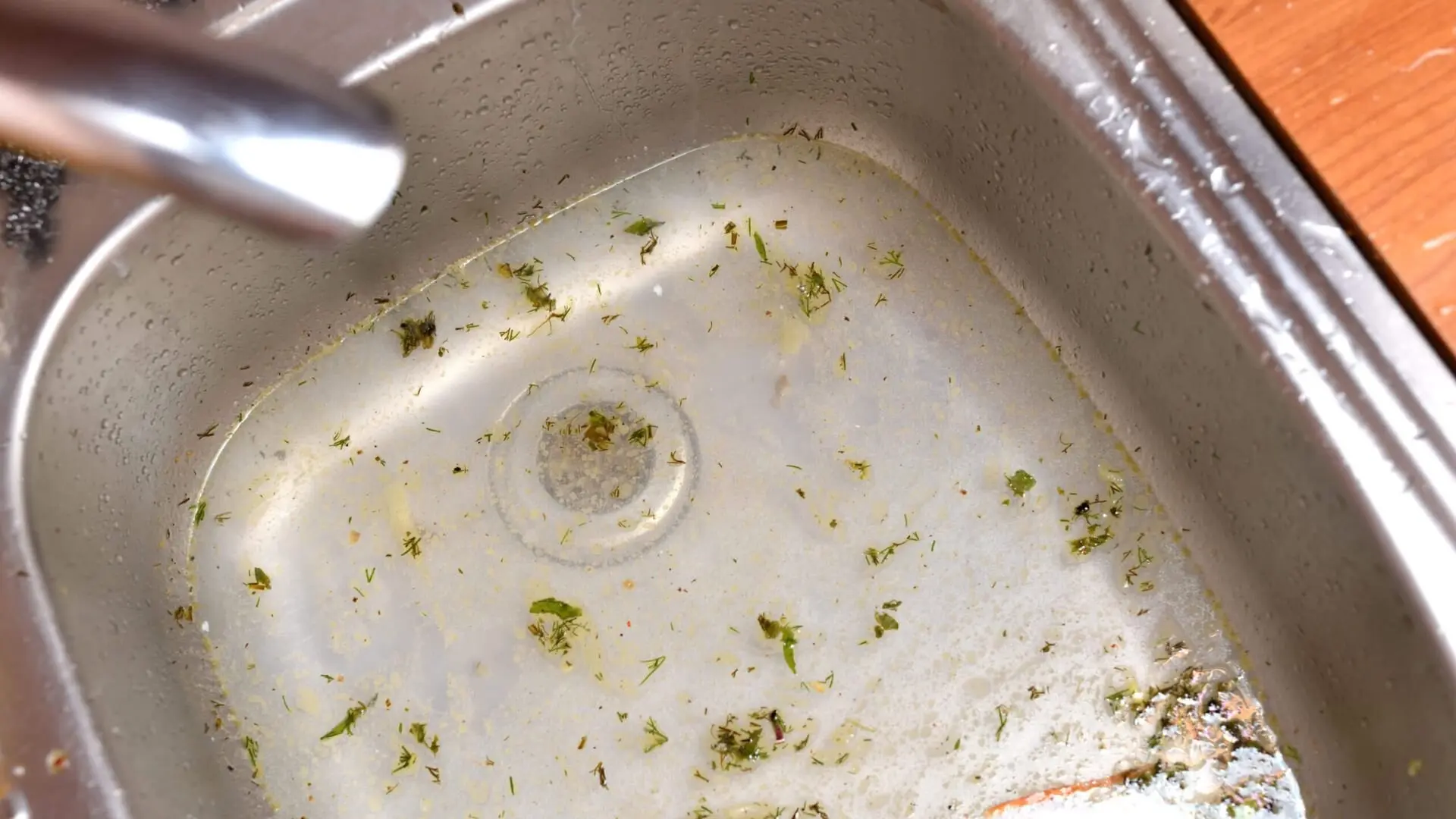
One cardinal rule for kitchen sink maintenance is never to pour grease or oil down the drain. As they cool, they solidify and adhere to the walls of your pipes, leading to stubborn clogged kitchen sinks.
After cooking, let the grease cool and dispose of it in the trash. If you have a lot of oil to dispose of, consider using an old can or a milk carton as a disposal container to throw out with your regular trash.
Natural deodorisers like baking soda and white vinegar help with unpleasant smells and clear your kitchen sink drain.
Once a week, pour half a cup of baking soda and half a cup of white vinegar down the drain. The fizzing action helps to break down food debris and grease. After it sits for 10 minutes, flush the drain with boiling hot water to clear out the loosened debris.
Your garbage disposal can handle much, but it’s not meant for everything. Avoid putting fibrous materials, eggshells, and non-food items at your disposal, as these can cause damage and clogged drains.
Run your disposal with plenty of cold water, which helps solidify grease or oil so it can be chopped up before reaching the drain pipe. Cleaning your garbage disposal with ice cubes can also help sharpen the blades and dislodge any trapped food debris.
Scrape Before Washing: Before placing dishes in the sink, scrape off all food scraps into the trash or a compost bin. Larger particles can cause blockages and overwork your garbage disposal.
Make it a regular habit to thoroughly clean plates of leftover food and throw larger food waste directly into the trash or compost pile.
Knowing when to enlist the help of a professional plumber is crucial for maintaining your plumbing system’s integrity. A plumber’s expertise is necessary if persistent or severe blockages occur despite your efforts with plunging and natural cleaners. They have the tools and skills to safely and efficiently clear clogs, preventing potential damage.
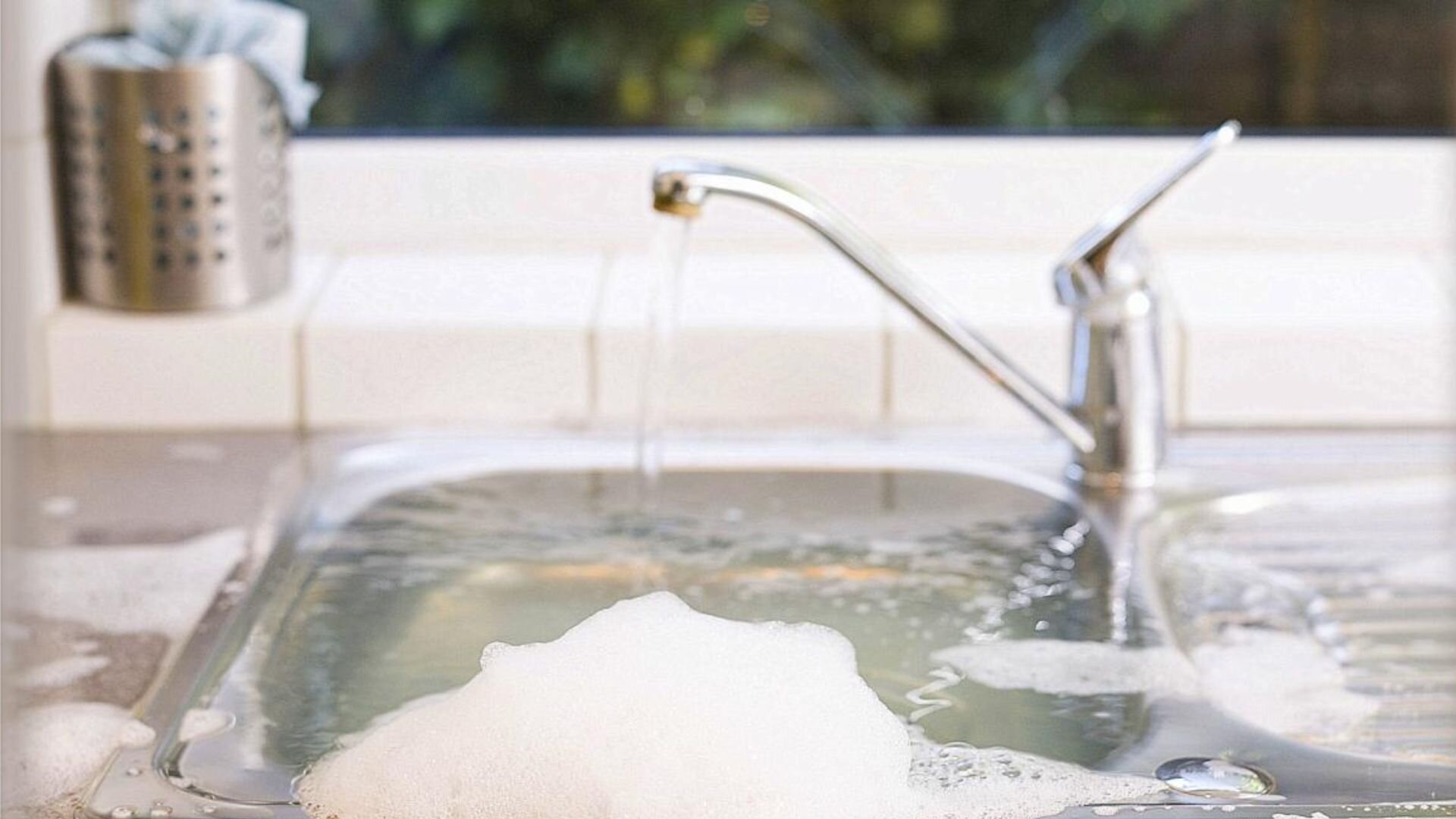
Recurring clogs, water backing up in other areas, or strange noises from your drains are all signs that it’s time to call a professional. A plumber can conduct an in-depth inspection, possibly using camera inspection techniques, to uncover any underlying issues that DIY methods can’t fix.
Also, a professional plumber can provide preventive maintenance advice and services to ensure your system operates smoothly, helping you avoid future blockages and costly repairs. Calling a plumber at the right time can save you money and hassle in the long run.
Preventing kitchen sink blockages doesn’t require expensive tools or harsh chemicals. Simple, everyday practices like being mindful of what you throw in the disposal and using natural cleaners like baking soda, white vinegar, and hot water can keep your sink and drain pipe clear.
If you are facing a stubborn clog, don’t hesitate to seek help from plumbing experts to protect your pipes and ensure your kitchen remains the heart of your home.
For residents in Melbourne facing persistent plumbing issues such as a blocked drain, WP Plumbing is your go-to solution. Don’t let a clogged sink disrupt your home life— contact WP Plumbing today, and let our experts restore the flow to the heart of your home.
Only put small food scraps down the disposal. Run cold water while grinding for 30 seconds to help flush particles down the drain and sewer lines. Avoid eggshells, bones, grease, and stringy foods that can wrap around moving parts and cause clogs.
While coffee grounds are organic, their acidity and ability to clump together make them a major cause of blocked kitchen sink drains. It’s best to empty coffee filters or grounds into the trash instead.
Try using a plunger or drain snake to dislodge material in the sink trap and drain pipe. For mild clogs, boiling water or a drain cleaner solution may work. Severe blockages may require a plumber’s snake to access the home’s plumbing deeper.
Fats, oils, grease (FOG), and food waste like egg shells, bones, husks, seeds, and peels are drain blockers. Other no-nos are harsh chemicals, medications, feminine products, paper towels, and large food scraps.
Pouring hot water down the drain weekly helps keep drains clear. Wipe up grease, oil and food debris before washing. Consider using sink stoppers to capture food waste for the trash instead of the drain. Don’t pour toxic chemicals that can damage plumbing.
Discover easy DIY fixes for minor kitchen sink clogs and signs it’s time to call a professional. Learn techniques like plunging, draining snakes, and chemical treatments. Understand what causes blockages and simple prevention tips. Evaluate your options to resolve drainage issues promptly before costs multiply from damage or health risks.
Thinking of pouring bleach down your blocked drain? Hold up. While bleach might seem like a quick fix, it can often worsen clogs and damage your pipes. This guide explains what really happens when bleach hits a blockage, why it may not clear the mess, and the smarter, safer steps to get your drains
If your toilet flushes slowly, makes gurgling noises, or refuses to clear properly, a blocked drain might be the culprit. This blog uncovers how clogged plumbing can affect your toilet’s performance, what warning signs to watch for, and how to stop small issues turning into major headaches. Whether
